Why the UK economy is shrinking
Newly released GDP figures fuel calls for interest rate cut
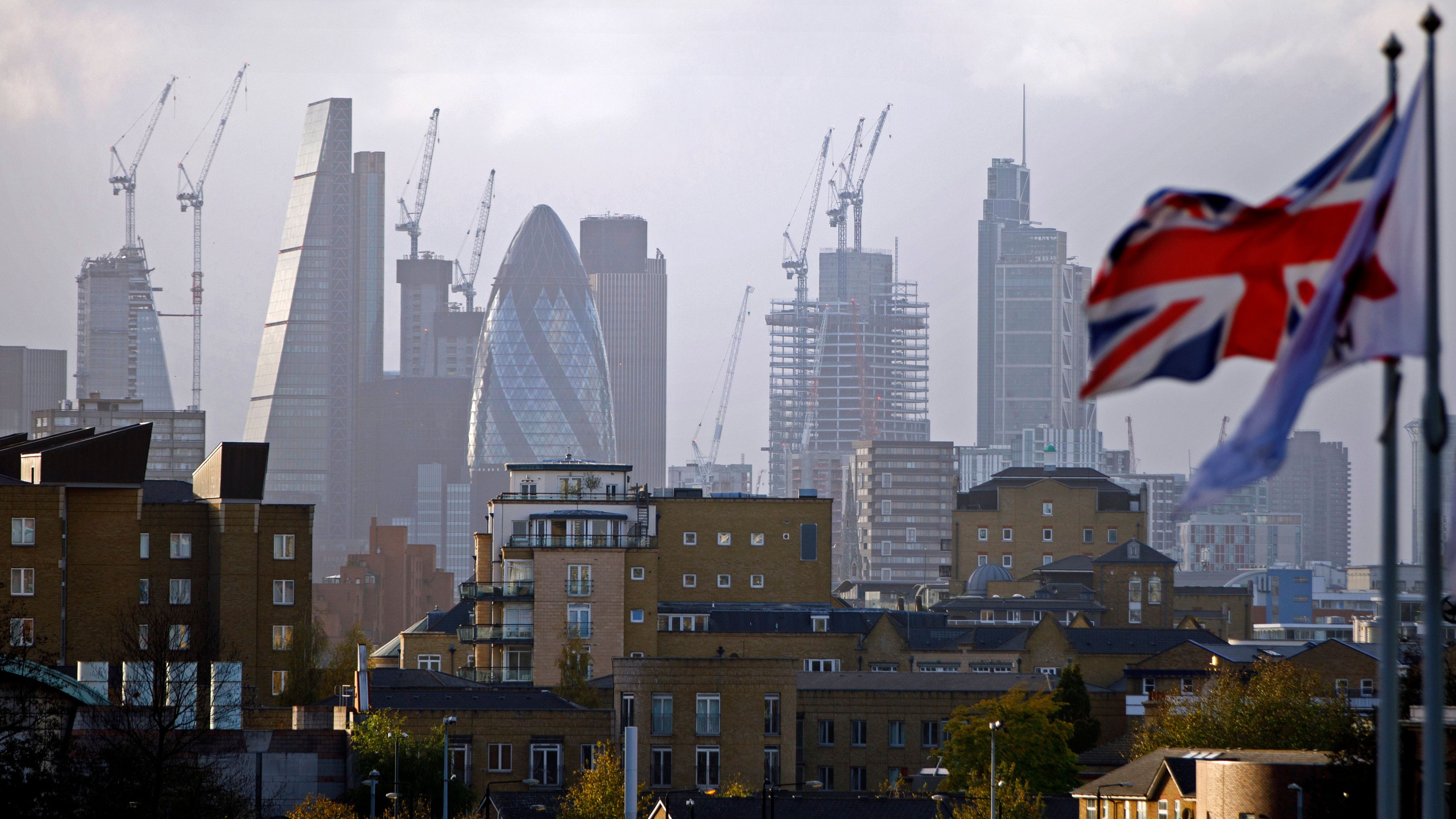
A free daily email with the biggest news stories of the day – and the best features from TheWeek.com
You are now subscribed
Your newsletter sign-up was successful
The UK economy shrank more than expected in November as consumer spending and manufacturing declined in the run-up to the December election, newly released figures show.
The disappointing result followed the third Brexit deadline delay, after Parliament voted in October to extend the UK’s membership of the EU by a further three months.
What has happened?
The Week
Escape your echo chamber. Get the facts behind the news, plus analysis from multiple perspectives.

Sign up for The Week's Free Newsletters
From our morning news briefing to a weekly Good News Newsletter, get the best of The Week delivered directly to your inbox.
From our morning news briefing to a weekly Good News Newsletter, get the best of The Week delivered directly to your inbox.
Gross domestic product (GDP) fell by 0.3% in November from the previous month, according the the Office of National Statistics (ONS).
The UK’s manufacturing sector’s output was 1.7% lower in November, while the service industry - which accounts for 80% of the UK economy - was down by 0.3%, reports the Financial Times.
Rob Kent-Smith, head of national accounts at the ONS, said: “The economy continues to slow, with growth in the economy compared with the same time last year at its lowest since the spring of 2012.”
However, Samuel Tombs, an economist at consultancy Pantheon Macroeconomics, insists there are some positives to be drawn from the November figures.
A free daily email with the biggest news stories of the day – and the best features from TheWeek.com
Upward revisions for the previous two months suggest “the latest gross domestic product data are nowhere near as horrendous as they appear initially”, he says, adding that the weakness “should prove to be temporary”.
Why was the November result unexpected?
The performance was worse than the 0% growth that economics had forecast for the month.
That prediction came after the UK economy shrunk in the second quarter of 2019 for the first time in almost seven years, a decline blamed on Brexit uncertainty.
But modest growth in September and October, at 0.1%, led economists to expect a slightly better November than proved to be the case.
Britain’s oldest economics think-tank, the National Institute of Economic and Social Research (NIESR), estimates that figures due to be released next month will show that the UK economy stagnated in the fourth quarter, with growth for 2019 as a whole at 1.4%, reports Bloomberg.
Garry Young, the think-tank’s director of forecasting, said: “While there is some evidence of an improvement in business optimism following the general election, it is doubtful that this will do much to change the short-term economic outlook of further lacklustre growth.”
Why did it shrink?
November marked a bad month in a bad year for the UK economy, which grew by just 0.9% up to that date - the weakest annual growth for eight years, reports The Times.
The lack of growth, particularly in November, was probably down to political uncertainty hanging over families and businesses ahead of the 12 December election, says The Guardian.
The newly released figures will increase pressure on the Bank of England’s Monetary Policy Committee (MPC) to cut interest rates, says economist Andrew Wishart of Capital Economics.
“In normal times, the MPC would already have cut rates but it held off to see if the general election produced a revival in sentiment,” he explains. “What really matters is what happens in the data for January. At the moment, we think the MPC may hold off from cutting rates but it will be a close call.”
The committee will have plenty of data to examine before making a decision, due to be announced on 30 January. New figures for inflation, retail sales and unemployment levels are due to be released over the next few weeks, along with the Purchasing Managers Index for January, which will give an indication of how the economy has fared so far this year.
Lee Hardman, a currency analyst at Japanese bank MUFG, told the Financial Times: “The UK rate market has been underpricing the risk of a BoE rate cut and will need to continue to adjust to price in a higher risk as soon as at the end of this month.”
Meanwhile, Frances O’Grady, general secretary of the Trade Union Congress (TUC), is calling on the Government to respond to the downturn with plans to boost growth and living standards.
“These figures are bleak news for the economy and working people, with vital industries like manufacturing in the doldrums,” she said.
-
 The ‘ravenous’ demand for Cornish minerals
The ‘ravenous’ demand for Cornish mineralsUnder the Radar Growing need for critical minerals to power tech has intensified ‘appetite’ for lithium, which could be a ‘huge boon’ for local economy
-
 Why are election experts taking Trump’s midterm threats seriously?
Why are election experts taking Trump’s midterm threats seriously?IN THE SPOTLIGHT As the president muses about polling place deployments and a centralized electoral system aimed at one-party control, lawmakers are taking this administration at its word
-
 ‘Restaurateurs have become millionaires’
‘Restaurateurs have become millionaires’Instant Opinion Opinion, comment and editorials of the day
-
 The end for central bank independence?
The end for central bank independence?The Explainer Trump’s war on the US Federal Reserve comes at a moment of global weakening in central bank authority
-
 Should Labour break manifesto pledge and raise taxes?
Should Labour break manifesto pledge and raise taxes?Today's Big Question There are ‘powerful’ fiscal arguments for an income tax rise but it could mean ‘game over’ for the government
-
 What are stablecoins, and why is the government so interested in them?
What are stablecoins, and why is the government so interested in them?The Explainer With the government backing calls for the regulation of certain cryptocurrencies, are stablecoins the future?
-
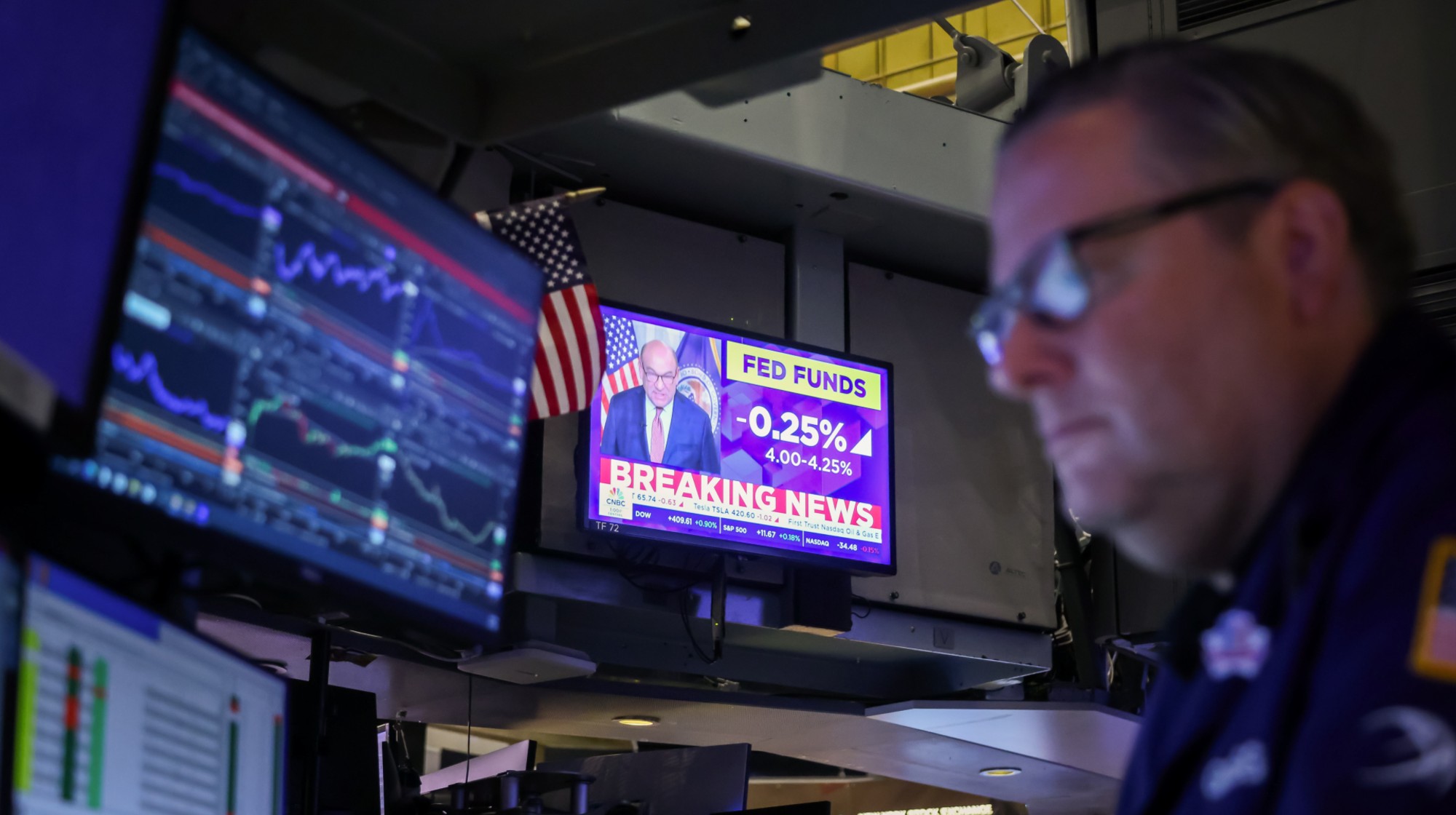 Fed cuts interest rates a quarter point
Fed cuts interest rates a quarter pointSpeed Read ‘The cut suggests a broader shift toward concern about cracks forming in the job market’
-
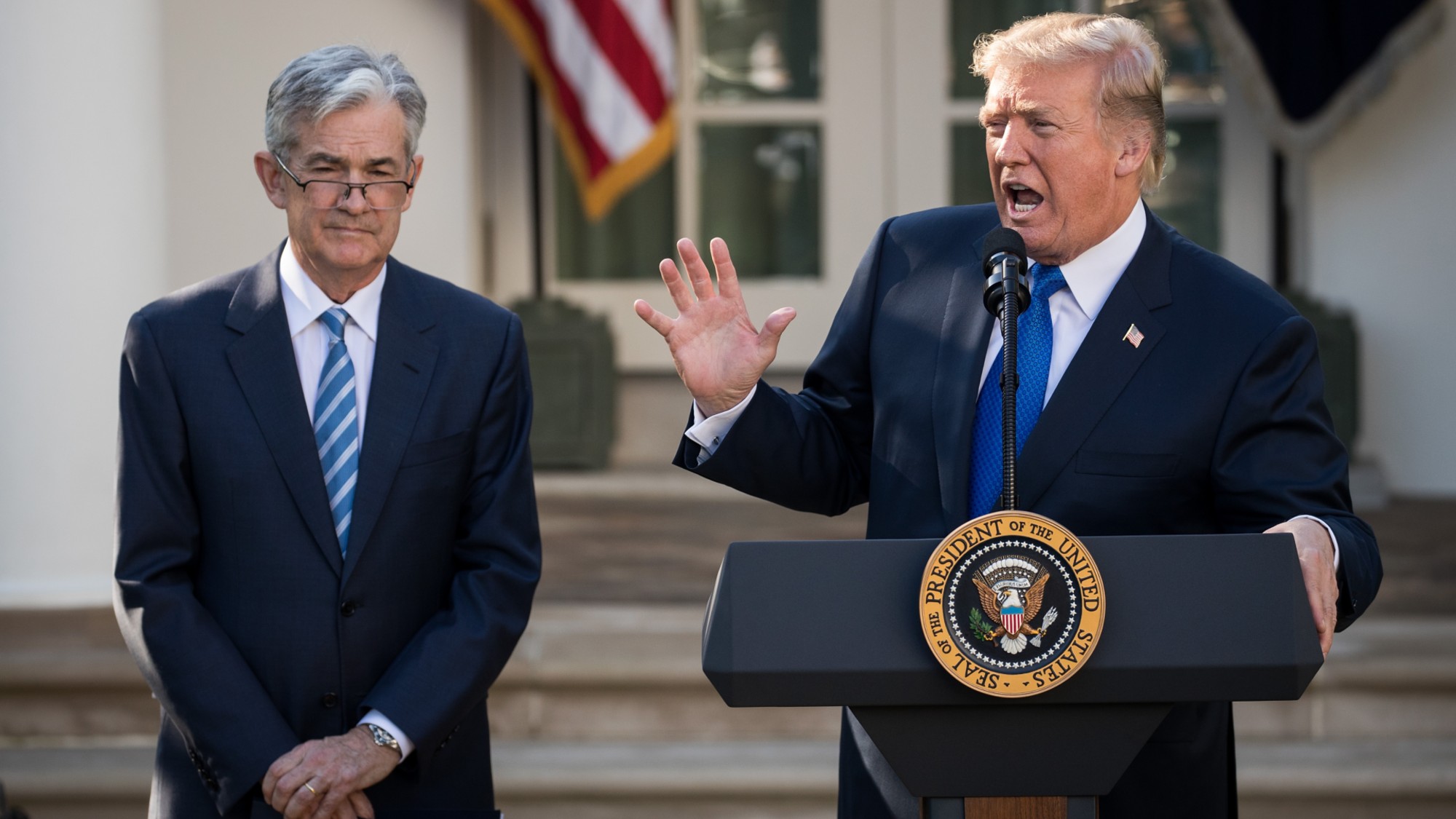 How will Wall Street react to the Trump-Powell showdown?
How will Wall Street react to the Trump-Powell showdown?Today's Big Question 'Market turmoil' seems likely
-
 Will Rachel Reeves have to raise taxes again?
Will Rachel Reeves have to raise taxes again?Today's Big Question Rising gilt yields and higher debt interest sound warning that Chancellor may miss her Budget borrowing targets
-
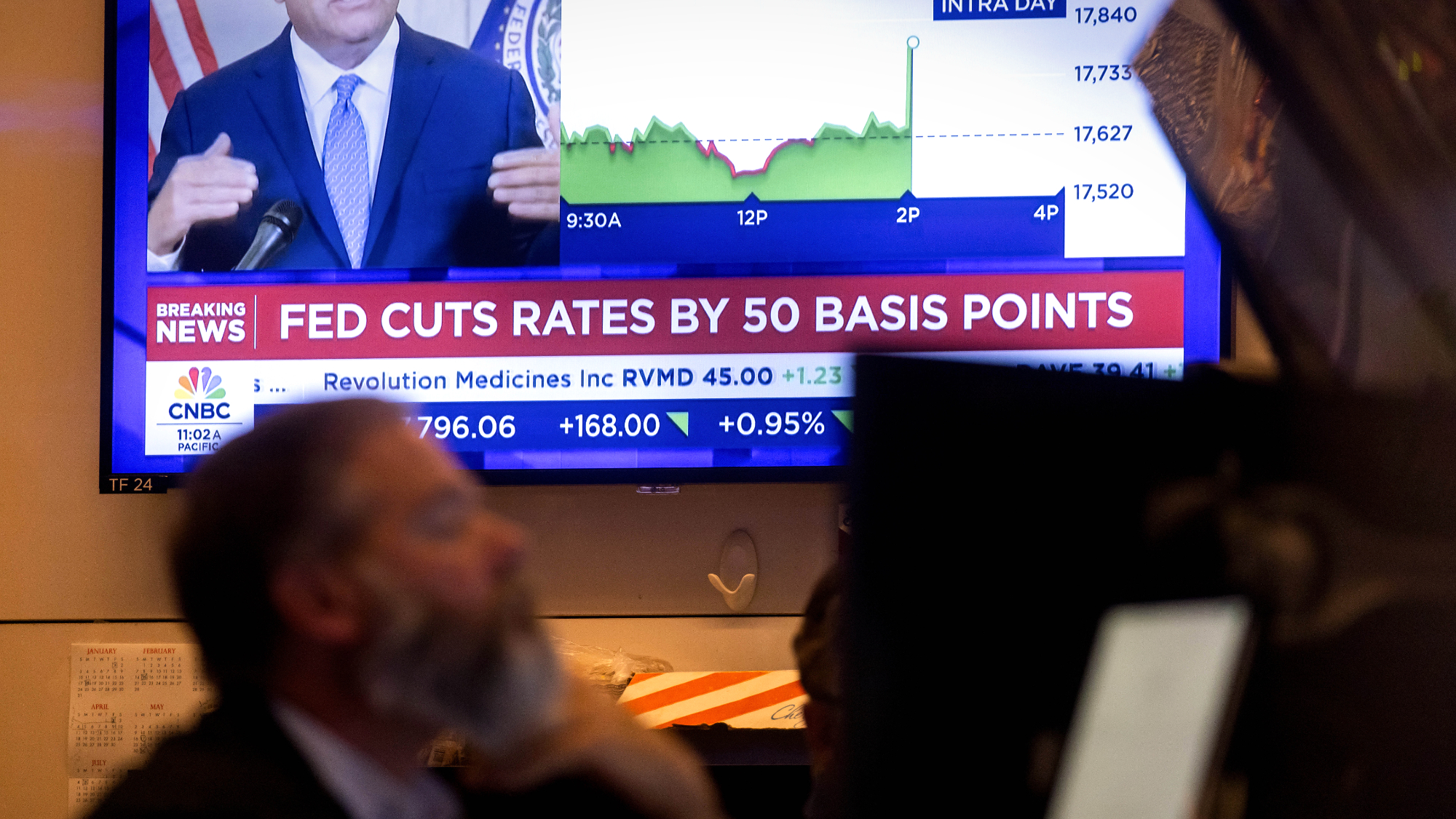 Fed cuts rates half a point, hinting victory on inflation
Fed cuts rates half a point, hinting victory on inflationSpeed Read This is the Fed's first cut in two years
-
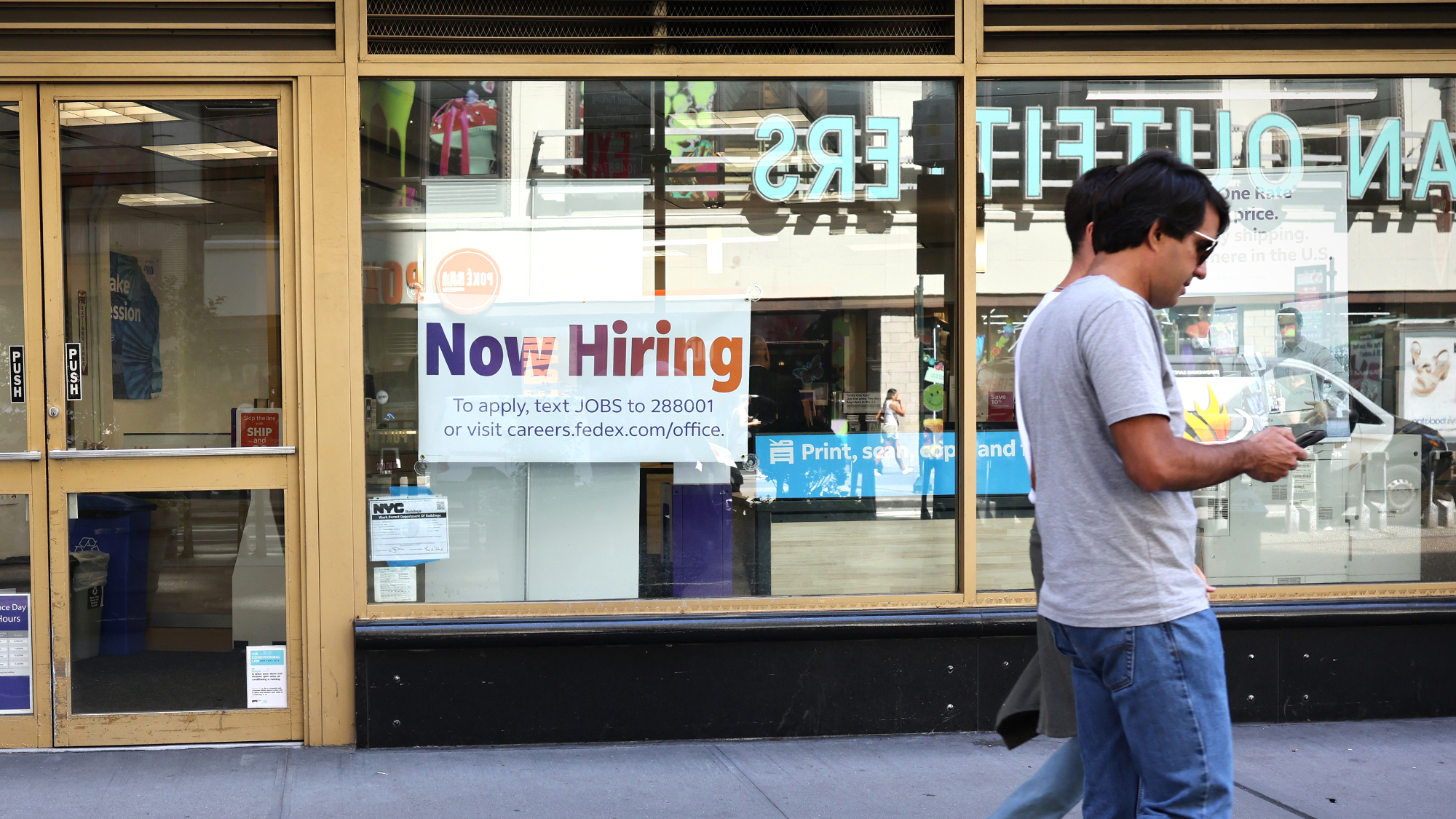 US job growth revised downward
US job growth revised downwardSpeed Read The US economy added 818,000 fewer jobs than first reported